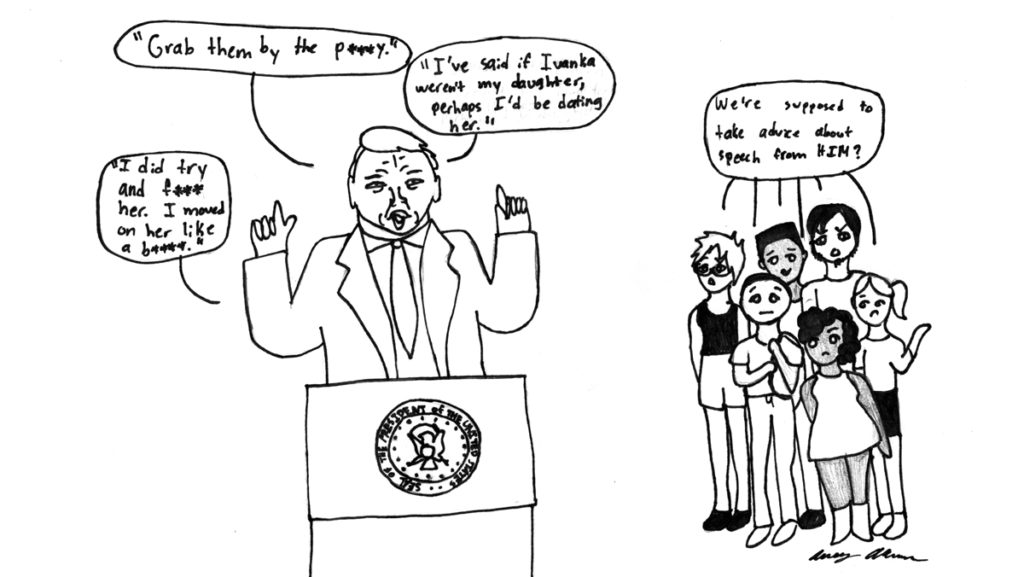Ithaca College, and higher education as a whole, is currently grappling with the news of President Donald Trump’s new executive order concerning free speech on campuses. The order, signed March 21, states that institutions that do not ensure the freedom of speech and expression for their students will lose all federal funding. For private institutions like the college, the order means they must follow their already-implemented free-speech policies, something that the college is already legally obligated to do.
In the past, the college has always upheld conservative speech, ensuring all political leanings and ideologies have a platform on campus. Despite being a predominantly liberal campus, the college has been visited by conservative speakers numerous times. Even when these speakers or organizations would cause protests or debates at the college, the administration did not waive its permission to profess their ideologies. The only exception to this practice was when Ithaca College Republicans and IC Young Americans for Liberty attempted to bring to campus right-wing speaker Milo Yiannopoulos, whom the college blocked only due to safety concerns.
However, despite the college’s passable track record, there are ways our institution could do better. The encouragement of genuine discussion and debate about political ideologies may be evident in the college’s official legislature, but this encouragement and openness are not always reflected in the student body. Over the past few years — especially in light of Trump’s election and his campaign leading up to it — some students with conservative political beliefs reported feeling as though they do not have a space on campus where they can express their beliefs. Instead of their ideas’ being entertained via debate, conservative students reported others’ disregarding their opinions altogether and immediately rejecting them. This rejection of ideas has been no secret to the college — in Fall 2018, Sean Eversley Bradwell, director of the Center for Inclusion, Diversity, Equity and Social Change, led a discussion on how to have diverse political debates that are productive.
This is an issue on our campus that the college should continue searching for solutions to. In any learning environment, intellectual diversity is vital in preparing students for the world, and not promoting that diversity is doing them a disservice. Being a predominantly liberal institution, the college has a tendency to be ideologically monolithic, an issue that contributes little to students’ learning experiences and the developing of their political opinions at the college.
There are initiatives being taken at the college to combat this. Bradwell’s discussion, for example, engaged students on how to discuss controversial ideas appropriately. While there are many conservative ideas that denounce certain identities and call — directly and indirectly — for their disenfranchisement, students pretending that these ideas do not exist and not challenging them in debate is not conducive to free speech. Despite the pain and fear these growing ideas in the right-wing cause — like Yiannopoulos’ condemnation of feminism as “cancer” — ignoring them does not point toward any sort of resolution. Instead of focusing an executive order on ensuring free speech, which is already largely protected at colleges across the country, we need to better facilitate tough conversations about divisive issues instead of drumming up free-speech conspiracies.
The Trump administration has concocted a defunct executive order. Instead of encouraging genuine conversation about liberal and conservative ideas, the executive order only contributes to the inflammatory rhetoric that surrounds discussions of free speech on college campuses. This executive order is a way to divide people across campuses and point fingers at the far-left to blame it for being the cause of political strife at colleges, especially incidents resulting in supposed censorship.
Ultimately, while the college would benefit from increased political debate on campus, the executive order is doing little to nothing in the way of accomplishing that.














